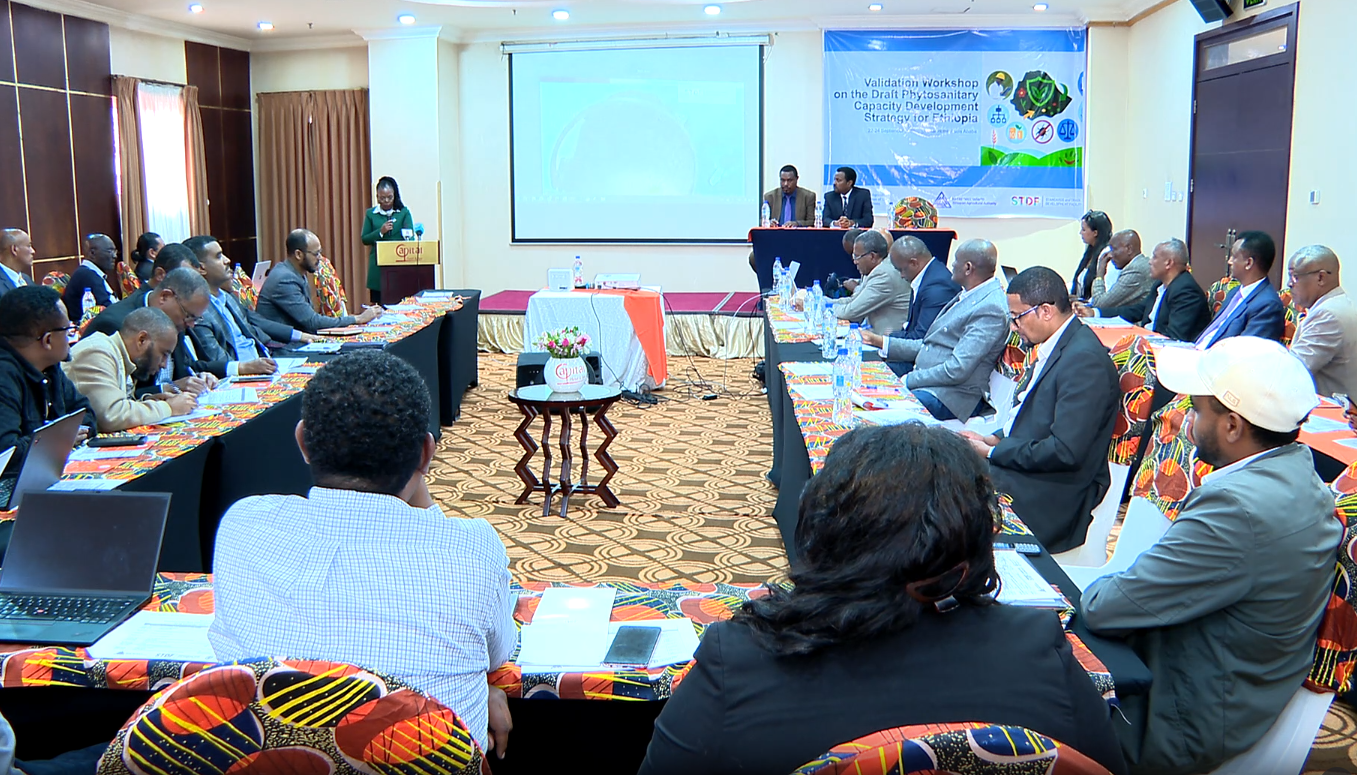Ethiopia Develops Phytosanitary Strategy to Boost Agricultural Transformation - ENA English
Ethiopia Develops Phytosanitary Strategy to Boost Agricultural Transformation

Addis Ababa, September 22, 2025 (ENA) – Ethiopia has introduced a new Phytosanitary Capacity Development Strategy (2026-2030) to promote its agriculture sector transformation.
The initiative is among the country's key strategies for transforming farming in making it more contemporary and improving its economic production.
Ethiopia's Agriculture Authority, along with the FAO and the Standards and Trade Development Facility, has designed this new Phytosanitary Capacity Development Strategy, aiming to transform the country's agriculture sector.
A validation workshop on the draft Phytosanitary Capacity Development Strategy for Ethiopia (2026-2030) is convening in Addis Ababa.
During his opening keynote, Ambassador Driba Kuma, the Director General of the Ethiopian Agricultural Authority, emphasized the significant role the Phytosanitary Capacity Development Strategy (2026-2030) will have in further developing the country's agriculture.
According to the Director General, Ethiopia is a nation with huge agricultural potential, diverse agro-ecological zones and rich biodiversity, but farmers and exporters are beset by periodic risks from plant pests.
For the Director-General, pests have caused significant losses of yield, imposed high costs on farmers, and complicated the export of Ethiopia's agricultural commodities.
The strategy will serve as a national roadmap for modernizing phytosanitary services, the director general further stated.
"It will guide us in strengthening legislation, upgrading infrastructures, building human and institutional capacity and introducing modern tools such as digital systems for surveillance, diagnostics and information management."
The strategy has been designed to safeguard the cultural heritage of Ethiopia and conserve its biodiversity, he added, and indicated that it would also provide expanded safe market opportunities and safeguard the livelihoods of tens of millions of farmers.
Ambassador Driba also emphasized that the strategy, which was the fruit of collaborative labor, will require concerted effort to implement.
Farayi Zimudzi, UN Food and Agriculture Organization (FAO) Representative to Ethiopia, noted that the strategy is not an end but a means to an end, aiming to increase phytosanitary capability of Ethiopia.
For the representative, strategy will also be crucial to guarantee the liberty of export produce from pests, as well as increase foreign trade and drive upscale markets.
FAO is willing to work hand in hand with all stakeholders to the realization of the strategy, she assured.
The strategy aims at increasing agricultural exports, preventing the infestation of alien pests, and increasing compliance with international standards, it was found.